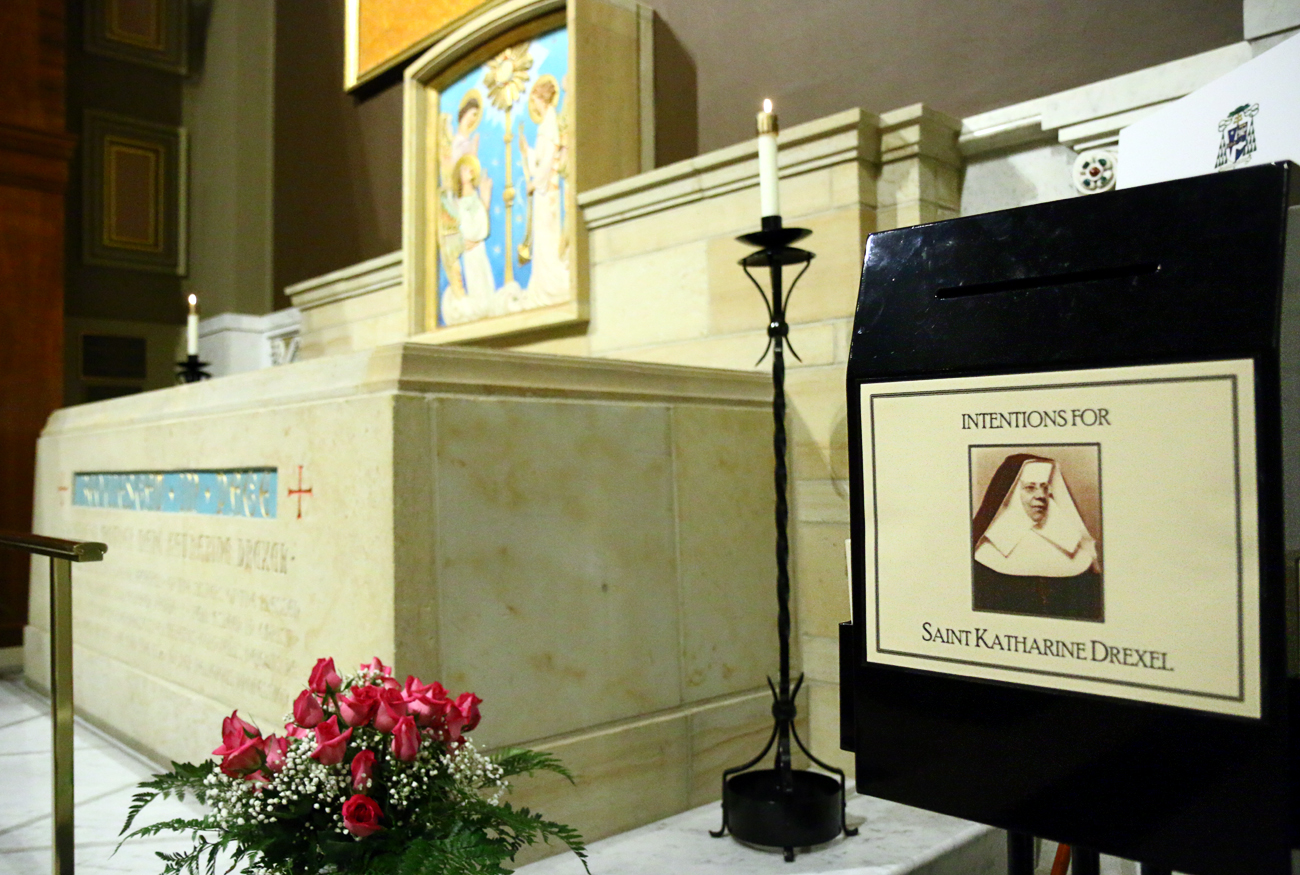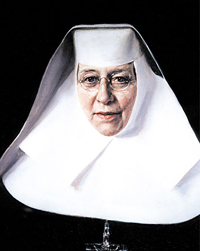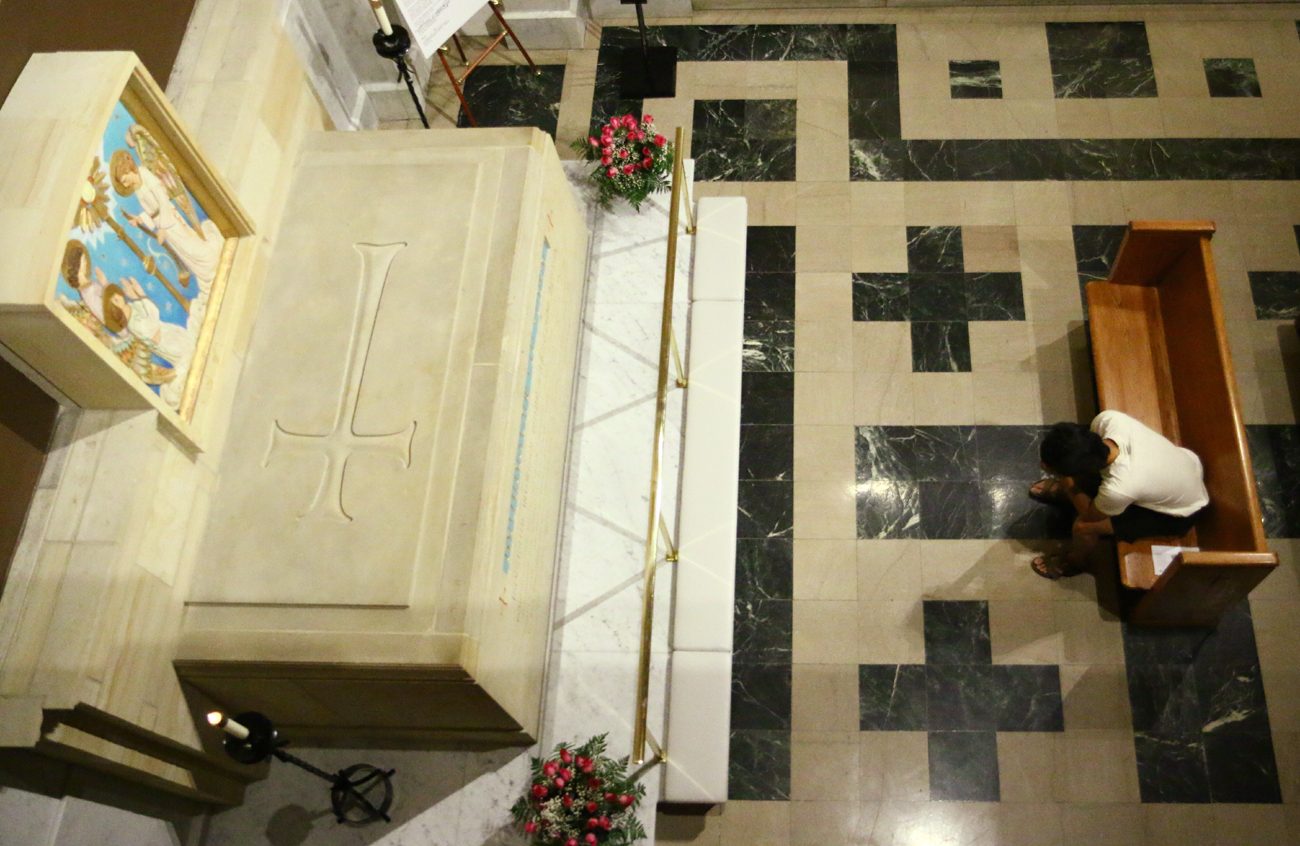
The sacred remains of Philadelphia native St. Katharine Drexel were installed in the Cathedral Basilica of SS. Peter and Paul in 2018, near the Drexel family altar. The move from the saint’s former resting place in Bensalem was financed by the Connelly Foundation, and was designed in part to make the saint’s shrine more accessible to pilgrims. (Photo by Sarah Webb)
Philadelphia’s beloved St. Katharine Drexel has just celebrated her first anniversary in a new shrine just off the Ben Franklin Parkway.
One year ago this August, the sacred remains of the Philadelphia heiress who became a missionary to oppressed Americans were relocated – or, in canon law terminology, “translated” – to the Cathedral Basilica of SS. Peter and Paul.
[hotblock]
The saint’s remains had previously been entombed in the chapel of St. Elizabeth Convent, the Bensalem motherhouse of the religious congregation founded by St. Katharine, the Sisters of the Blessed Sacrament.
She established the order in 1891 to minister to the marginalized African American and Native American populations. She died in 1955 and was canonized in 2000.
Due to a decline in vocations, the congregation opted to close St. Elizabeth Convent and list the property for sale.

St. Katharine Drexel
The current shrine, the construction of which was funded by the Connelly Foundation, is located along the left rear wall of the cathedral next to the Drexel family altar that the saint and her sisters erected in memory of their parents.
On Aug. 2 more than 130 faithful gathered at the cathedral for a memorial Mass celebrating the translation of St. Katharine’s remains.
“This is a bittersweet moment,” said Father Dennis Gill, rector of the cathedral and director of the archdiocesan Office for Divine Worship, who celebrated the midday liturgy.
Noting that while the closure of St. Elizabeth Convent and the original Drexel shrine marked a kind of death, Father Gill said the saint’s presence at the cathedral opened up new possibilities for a greater number of individuals to encounter her life and legacy.
He added that “St. Katharine Drexel continues to serve as a prophet in many ways, one who invites us to demonstrate a courageous witness to the Gospel, and to follow Jesus in all things.”
[hotblock2]
Father Gill stressed that the translation – a procedure strictly controlled by canon law – “reminds us that we have received a saint in glory, not just earthly remains.”
He added that the church “calls us to commemorate the translation of relics,” a practice that can be traced to at least the Middle Ages when solemn translations were celebrated throughout Christendom, often with elaborate processions and all-night vigils.
The liturgy, which coincided with the traditional First Friday devotion, was followed by exposition of the Blessed Sacrament.
“How fitting for St. Katharine Drexel,” said Father Gill, referencing the saint’s deeply eucharistic spirituality.
Above all, he noted, the beloved saint’s life calls the faithful to surrender “whatever we have, and all that we have, as we are” to the Lord.

A youth prays at the shrine of St. Katharine Drexel in the Cathedral Basilica of SS. Peter and Paul after an Aug. 2 Mass celebrating the shrine’s first year in its new location. (Sarah Webb)
PREVIOUS: Parishioners, community members learn how to accompany migrants
NEXT: Inspired by her faith, attorney serves as guide on path to citizenship


Share this story